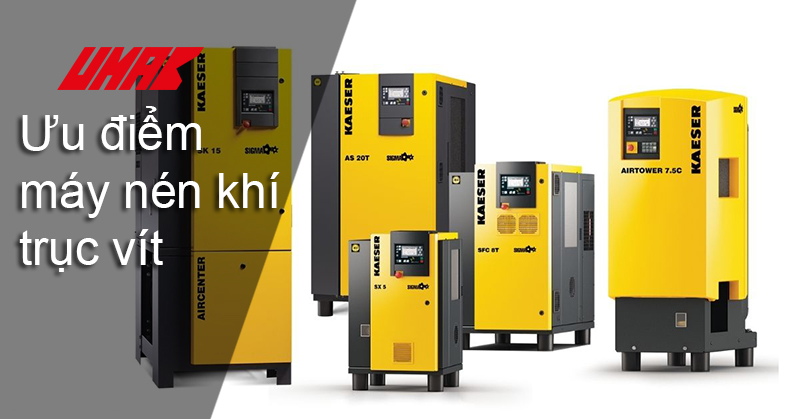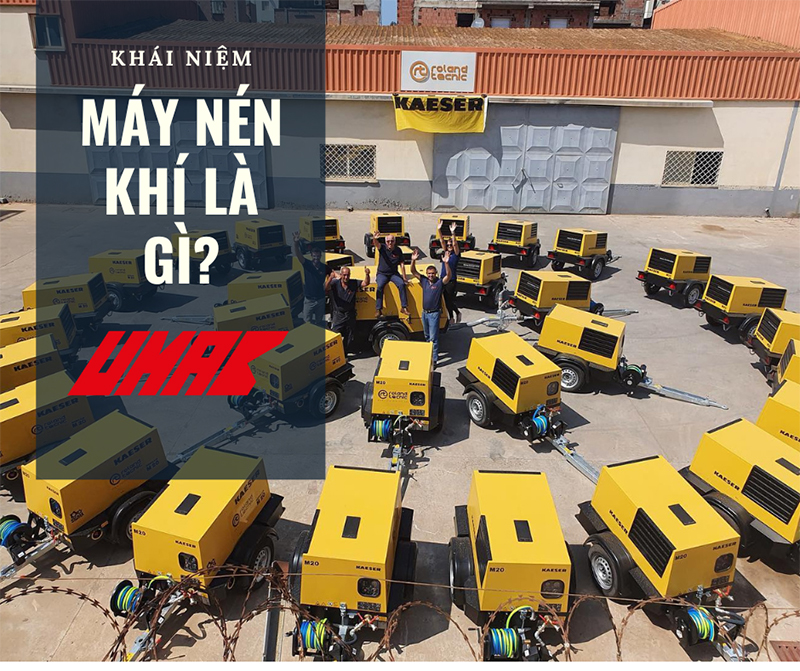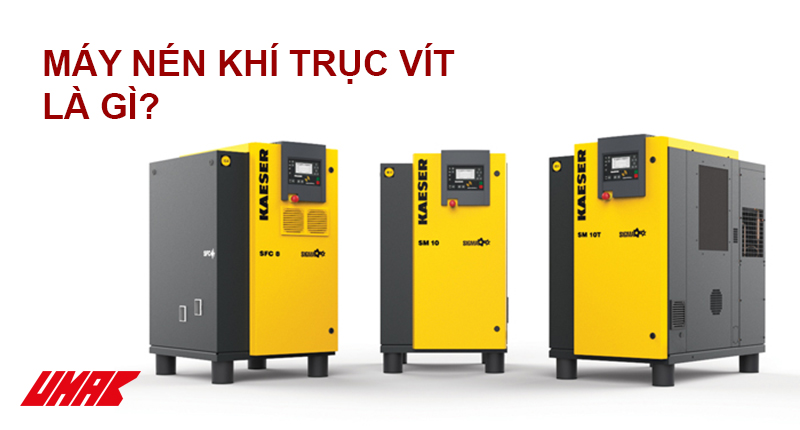TOP industries that require the use of Air Compressors
Industry experts have researched and identified ways to use compressed air to save time and labor. The applications of air compressors are nearly endless. From food to pain medication, the car you drive to the wooden chair you sit on, compressed air plays a role in manufacturing almost every product and piece of equipment in one way or another.

Air compressors are an indispensable part of modern society, aiding in increased productivity, precision, and speed in many industries.
- They power electrical tools to make construction easier.
- They can be divided into components with perfect precision, reliability, eliminating human errors.
- They can accelerate the movement of products along assembly lines. Compressed air is a vital tool for both mass production and DIY projects.
Mục lục
Which industries use air compressors?
Each industry has its own standards, requirements, and varying levels of demand. Some industries require interconnected air compressors, while others entirely rely on a single fixed air compressor.
Due to these variations, experts have fine-tuned air compressor technology to best suit each industry’s needs. Different air compressor models and accessories are best suited for different industries. Compressed air has become prevalent in most modern manufacturing sectors. Among the industries that use compressed air are:
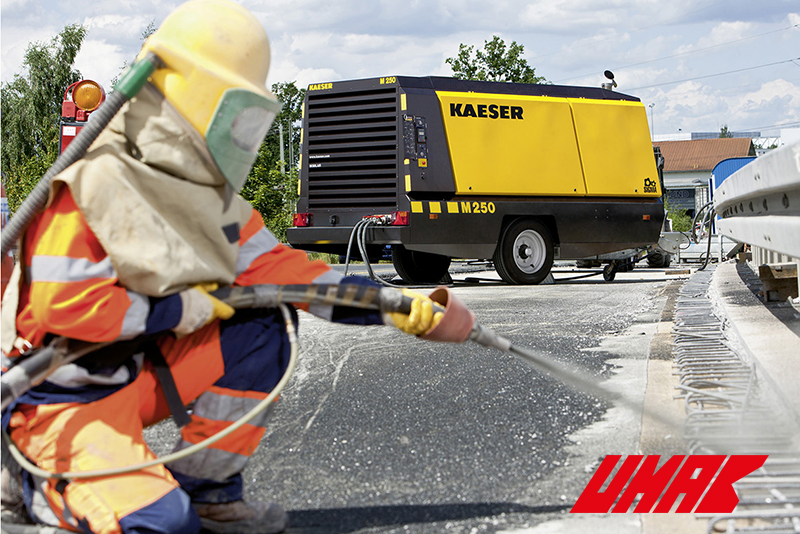
- Construction
- Automotive
- Food and Beverage
- Pharmaceuticals
- Electronics
- Aerospace
- Manufacturing
- Mining
- Agriculture
- Textiles
- Energy
These industries utilize compressed air for a wide range of applications, including power tools, automation, pneumatic systems, and much more.
Experts in all of these industries have streamlined processes, improved precision, and reduced labor requirements with compressed air, and each industry has its own applications for compressed air. Let’s explore different types of air compressors for each industry.
Automotive Industry:
From assembly to painting to quality control, compressed air is a necessity in the automotive industry. It brings numerous benefits to the automotive sector, making assembly and maintenance less labor-intensive and more time-efficient. Tasks that could take hours can be completed in minutes with the help of compressed air. As a result, automotive manufacturing plants operate more efficiently, and projects are completed faster.
For the automotive industry, the best choice is often a rotary screw air compressor, as it provides a continuous airflow with minimal downtime. Additionally, rotary screw air compressors are relatively easy to maintain and have fewer components compared to other types of air compressors.

Most advanced Kaeser rotary screw air compressors, with low oil-carryover capabilities, are ideal for safeguarding compressed air tools on automobiles. Furthermore, the vibration isolation ability of Kaeser rotary screw air compressors helps keep the equipment running quietly. This promotes operator comfort and safety, whether inside the plant or in the garage.
Pharmaceutical Industry:
In the pharmaceutical industry, precision and cleanliness are top priorities. To achieve the most reliable and precise results, pharmaceutical companies rely on air compressors.
In fact, compressed air plays a role in producing nearly every pill you’ve ever seen. Laboratory experts use pneumatic tools to divide precise components according to their formulas. The hardening and coating of pills also require compressed air. Even the plastic boxes used for packaging pills are molded and labeled using compressed air.
The most common type of air compressor in pharmaceuticals is oil-free compressors. Oil-free compressors provide the most sterile air possible, which is why they are essential for the pharmaceutical environment. Even the slightest oil contamination can impact the air quality in a sterile industry.
Railway Industry:
The pneumatic needs of the railway industry are unique. When it comes to freight or passenger trains, air compressors must operate with impure ambient air containing dust, moisture, or dirt, as well as under harsh temperature conditions. Impurities can lead to lubrication issues within the air compressor system, rendering the engines unable to perform their duties. This would be critical as trains require reliable compressed air.

If you have ever traveled by train, you have experienced components powered by compressed air, whether you realized it or not. The doors, brakes, and suspension systems of trains rely on compressed air to operate. If any of these components fail to function, unplanned stops can lead to delays and costly repairs, while brake failures pose a clear danger to all involved.
Food and Beverage Industry:
The production of food and beverages requires clean compressed air to ensure hygienic and uncontaminated production. Air compressors expedite the food production process and minimize waste. In the food and beverage industry, compressed air is used for:
- Moving products along the assembly line.
- Peeling and cutting products.
- Injecting fillings into products like pastries.
- Rapidly cooling products for faster processing.
- Freezing products to eliminate bacterial concerns.
- Packaging uniform products.
- Blowing away debris to avoid cross-contamination.
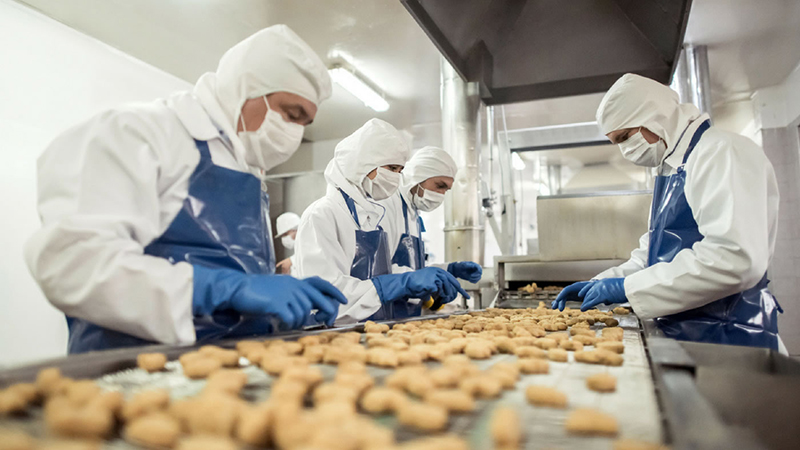
Using compressed air allows food and beverage manufacturing plants to produce products faster, more efficiently, and with improved consistency.
To prevent the spread of microorganisms and diseases through food, the food and beverage industry requires compressed air systems that maintain high cleanliness standards. Similar to the pharmaceutical industry, this application benefits from oil-free air compressors. For even higher hygiene standards, supplementary air treatment products are often used in conjunction with air compressors. These products include high-pressure filters and heavy-duty moisture separators.
Wood Processing Industry:
Compressed air can enhance the capabilities and efficiency of power tools, which is particularly useful in wood processing. Large-scale construction projects, sawmills, flooring companies, and furniture manufacturers all need to use air compressors to power drills, nail guns, paint sprayers, and other common woodworking tools. These pneumatic tools are highly beneficial for various wood processing applications, including:
- Securing furniture components together.
- Handling and sorting large wood logs.
- Precisely cutting wood.
- Applying surface finishes with varnishes or coatings.
Automated nail insertion. Using compressed air in these steps of the wood processing process prioritizes both safety and efficiency, minimizing the time and labor required to produce finished products.
Agricultural Industry
Agriculture is a timeless and never-outdated industry. For thousands of years, humans have been involved in farming and livestock.
Modern technology has increased productivity in the agricultural industry. This benefits humanity as a whole by reducing food costs and increasing the availability of food. On farms around the world, compressed air is used for irrigation, crop seed spraying, operating milking machines, inflating tractor tires, and greenhouse ventilation, among other applications.
These compressors have longer lifespans than other compressors under heavy use conditions. Their pressure lubrication system ensures smoother operation. Moreover, they reduce the risk of overheating, which is crucial for outdoor use in harsh weather. With pre-installed oil filters and pressure gauges, maintenance is quick and straightforward. Unexpected downtime for machinery is highly disadvantageous in agriculture, making this a significant benefit. Easy preventative maintenance allows for smoother and more stable operations.
Manufacturing Industry
Air compressors are a necessity in manufacturing processes – factories rely on compressed air as much as they do on water and electricity. Pneumatic tools, whether operated manually or automatically, make every step of the production process easier and faster. Compressed air is highly useful for processes such as stamping, mixing, pumping, gripping, cleaning, separating, and many other production processes that require precision, strength, and efficiency.
Different types of air compressors perform these functions best. Manufacturers often use either rotary screw or piston air compressors. One of the main benefits of piston air compressors is that they can operate at pressures of up to 500 pounds per square inch gauge (PSIG), whereas rotary screw compressors can only reach about 150 PSIG. Whether this increased pressure is necessary or not depends on specific compressed air needs.
Furthermore, many manufacturing companies are opting for environmentally-friendly air filtration systems to separate harmful waste from condensate water. Condensate moisture must be removed from the compressed air system to prevent bacteria and mold that thrive in moist environments, but condensate water polluted with contaminants is not safe to discharge into drains.
Get advice on Kaeser air compressors – contact the hotline at +84 833 486 586 for the quickest advice and support!
If you have any more text to translate or further questions, feel free to ask!



 Tiếng Việt
Tiếng Việt